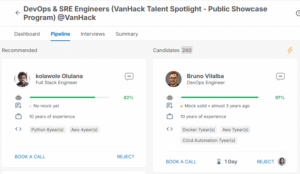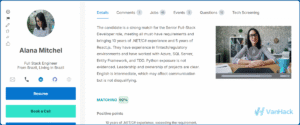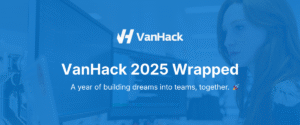If you’re leading a scaling startup, finding the right senior engineers to fuel your growth is likely a top priority. The talent market is incredibly tight, with top engineering candidates often getting multiple offers in just a month. This article breaks down the main recruitment models, highlights key factors to consider, and helps you choose the best approach for your startup’s needs.
What to Look for When Hiring Engineering Talent
Before jumping into specific recruitment options, you need a clear framework to evaluate what works for your startup’s growth goals and current setup. The engineering job market has changed a lot, demanding smarter ways to find and assess talent.
Speed in hiring tops the list for senior roles. Standard processes often take 42 days, but specialized services can cut that down significantly. With top candidates getting offers in under 30 days, moving fast gives you a real edge.
The quality of candidates and how well they’re vetted matter just as much. Relying solely on resumes misses the mark for senior engineers. Modern recruitment should include practical tests like coding challenges, system design reviews, and even video intros to check communication skills.
Finding talent that fits your startup’s culture is another key piece. Engineering manager roles are especially hard to fill, as they need both technical depth and leadership skills. Recruiters must grasp the unique challenges of startups, from equity deals to fast-paced growth.
Support for relocation and visas is increasingly important for global hiring. With nearly half of DevOps roles now remote, many startups also want to bring top international talent to key locations.
Access to senior engineering networks is crucial for reaching passive candidates who aren’t actively looking. The strongest talent often comes through niche communities, not generic job boards.
Finally, as your team grows from 10 to over 100 engineers, your recruitment partner needs to scale with you. Budget-friendly and predictable pricing becomes essential, especially compared to high per-hire fees.
Comparing Recruitment Models for Your Startup
Traditional Staffing Firms vs. Engineering-Focused Recruiters
Traditional staffing firms work across industries with a broad approach. They have wide reach and set processes, but often lack the technical know-how needed for senior engineering hires.
These firms charge 20-30% of a candidate’s yearly salary per placement. For a senior DevOps engineer earning an average of $144,290, that’s about $29,000 to $43,000 per hire. Their generalist style can lead to longer screening times and more rejections due to weak technical evaluations.
Engineering-focused recruiters, on the other hand, specialize in tech roles. They bring deeper insight into candidate skills, market trends, and startup culture. Still, many stick to per-hire fees, which can add up quickly during rapid growth.
The real difference comes down to expertise in technical assessments. Specialized recruiters better evaluate system design, coding ability, and other critical skills for senior roles.
Internal Teams vs. External Recruitment Partners
Building an internal hiring team gives you control and alignment with your culture, but it demands significant resources. You need dedicated staff, tech tools, and time from your senior engineers to screen candidates.
The cost isn’t just salaries. Each interview can take 2-4 hours of a senior engineer’s time, and at $150-200 per hour, that adds up fast. This pulls focus away from core work during critical growth phases.
Internal teams also often lack access to wide networks or passive candidates. They depend on job boards and referrals, missing out on the connections external firms build over time.
External partners step in to handle early screening and technical assessments, freeing your team to focus on final interviews and fit. The best ones deliver curated shortlists, not endless resumes, and blend well with your internal process.
Boutique Firms vs. Full-Service Solutions Like VanHack
Boutique recruiting firms offer hands-on service and niche expertise. They manage smaller candidate pools but focus on building strong relationships. However, they often lack the tech or full range of services startups need as they grow.
Many boutique firms stop after placing a candidate, leaving you to deal with visas, relocation, and other logistics. For global hiring, this creates extra workload and potential issues.
Full-service solutions like VanHack blend personal attention with robust tools and support. They cover everything from visa handling to relocation, which helps startups hiring internationally without in-house expertise.
VanHack’s subscription model, at $3,000 per month for unlimited hires, cuts costs compared to per-hire fees. For example, a company hiring seven engineers paid $9,000 total, versus over $100,000 with traditional fees.
Traditional Methods vs. AI-Driven Talent Platforms
Traditional recruiting leans on manual reviews and recruiter judgment. While experience helps, this approach takes time and risks missing key factors due to human error.
AI-driven platforms use smart algorithms to match candidates more effectively, looking beyond basic keywords. They streamline the process with faster, data-backed insights.
These platforms often feature automated matching, video analysis, and technical interview tools. This cuts down initial screening time while offering a clearer picture of each candidate.
Instead of sifting through hundreds of applications, hiring managers get focused shortlists. Candidate profiles might include video intros, scored technical interviews, and coding results, giving solid data before any in-person talks.
Why VanHack’s Vanna Stands Out for Growing Startups
For startups at Series A to C, VanHack offers a practical mix of speed, quality, and affordability. Their platform focuses on engineering hires, fitting the needs of companies aiming for fast growth.
VanHack combines in-depth technical screening with global relocation support, powered by AI tools. They understand the specific hiring hurdles startups face.
Their talent pool targets senior engineers with 5-10 years of experience, ideal for roles like Full-Stack, Backend, or Frontend development.
With Vanna, VanHack’s AI recruiter, you get a flat monthly fee of $3,000 for unlimited hires. Pre-vetting includes video intros for communication checks, scored technical interviews, and coding test results, helping you make informed choices.
On top of that, VanHack handles global mobility, from visa paperwork to finding housing and schools. This support simplifies hiring talent from abroad for startups without internal resources.
Finding the Right Fit for Your Startup’s Stage
Your startup’s current phase and goals shape the best recruitment approach. Let’s look at common scenarios to match solutions to your situation.
Hiring your first VP of Engineering demands thorough evaluation. These leaders need both technical and management skills. VanHack’s detailed vetting tools help ensure you pick the right person for this key role.
Scaling from 10 to 50 engineers in 18 months requires cost clarity. Per-hire fees can spiral out of control during rapid hiring. VanHack’s flat-rate subscription offers predictable expenses alongside quick growth.
Competing with big tech companies for senior talent means speed is everything. Shorter hiring cycles can secure top candidates before others do. VanHack’s AI screening and pre vetted pool help you move faster.
If your strategy focuses on remote hires, especially from regions like Latin America, or relocating talent to places like Canada or Europe, VanHack’s expertise in global moves is a major plus. They manage the entire process, easing the burden of international hiring.
Looking Beyond Hires: The Long-Term Value of Partnerships
A strong recruitment partner does more than fill roles. They provide lasting value through strategy and operations. Here’s how to spot the difference between short-term help and a true ally.
Getting started with a partner varies in effort. Traditional firms often need lengthy onboarding and multiple meetings. VanHack streamlines this with quick setup and shared Slack channels, delivering candidates fast.
Training needs depend on the partner’s process. Generic firms offer little guidance, leaving you to figure out evaluations. VanHack’s detailed candidate profiles, with videos and technical scores, simplify assessments and maintain consistency.
Ongoing effort involves managing the relationship and keeping the candidate flow steady. Traditional firms can require constant re-engagement. VanHack uses feedback loops to maintain quality and adapt to your needs over time.
For growth, pricing and bundled services like HR or compliance support matter. These show a partner can scale with you efficiently.
Reducing risks with full services offers protection. VanHack’s global mobility support, covering visas and post-arrival help, adds real value for international hires.
Handling global moves is complex, but VanHack’s team manages immigration advice, logistics, and community integration through local WhatsApp groups for new hires.
How to Choose the Right Recruitment Partner
Picking a recruitment partner means weighing several factors tied to your startup’s stage, needs, and growth plans. Let’s break this down.
Your company stage sets different priorities. Pre-Series A startups often need a few critical hires on a tight budget, making boutique firms or short-term deals a good fit. Series A startups start building teams, needing scalable options with steady costs. Series B-C companies require robust systems for fast growth across engineering areas.
Hiring volume shapes the service you need. Single key roles benefit from boutique focus. Scaling teams calls for reliable pipelines across roles. Rapid growth needs unlimited hiring options and operational backup to avoid delays.
Technical needs differ by role and experience level. Basic engineering roles might work with standard recruiting. Specialized or leadership roles need advanced vetting and market knowledge for both skills and fit.
Location needs create unique challenges. Local hires focus on cultural match and market insight. Remote hires prioritize communication and independence. International hires need visa support and relocation help.
Timing plays a role in your choice. Urgent needs call for partners with ready talent pools and fast processes. Planned growth allows deeper searches. Flexible needs require partners who can ramp up quickly when opportunities appear.
For many growing startups hiring senior engineers, VanHack addresses these core factors while supporting global talent strategies.
Common Questions About Hiring Senior Engineers
What Are the Costs of Hiring Through a Staffing Firm?
Traditional staffing firms charge 20-30% of a candidate’s annual salary per hire. For a senior engineer earning $144,290, that means $29,000 to $43,000 each time. VanHack’s subscription model, at $3,000 monthly for unlimited hires, offers clear savings for startups hiring multiple engineers. This predictable cost helps with budgeting during growth spurts.
How Long Does It Usually Take to Hire Senior Roles?
On average, hiring a senior engineer takes 42 days through standard methods. However, top candidates often get offers in under 30 days, so speed matters. Specialized platforms can shorten this to just a few weeks with ready talent pools and efficient processes. VanHack’s AI tools and pre-vetted candidates help speed things up without cutting corners on quality.
How Does International Relocation Work for Tech Talent?
Relocating talent globally involves tricky steps like visa applications, legal compliance, and logistics. Most companies aren’t equipped to manage this alone. VanHack handles the full process, from immigration guidance to housing help and community support through local groups, making international hires much smoother.
Can You Hire Multiple Engineers for a Fixed Cost?
VanHack’s Vanna platform provides a subscription model at $3,000 per month for unlimited hires. This setup benefits startups scaling quickly, offering access to a vetted talent pool, AI matching, and detailed candidate profiles at a consistent price.
How Does AI Help Ensure Candidate Quality and Fit?
AI platforms use advanced systems to match candidates by analyzing context, not just keywords. VanHack’s AI evaluates technical skills with coding tests, communication through video intros, and problem-solving via scored interviews. This provides clear, data-driven insights to hiring managers before any in-depth interviews.
Conclusion: A Modern Path to Engineering Talent for Startups
Scaling startups face tough hurdles in hiring senior engineers: tight deadlines, complex global markets, and costs that can eat into growth funds. Traditional models like staffing firms or internal teams often fall short with high fees, outdated tools, and limited support for international hires.
VanHack’s Vanna brings a fresh approach, blending AI efficiency with global relocation services. Their subscription model, detailed vetting, and full support for international moves tackle the real challenges of building engineering teams.
The numbers highlight the difference: faster hiring cycles, cost savings with flat-rate pricing, and access to experienced talent. For Series A to C startups competing for engineers worldwide, VanHack offers the tools and support to succeed. Learn more at https://vanhack.com/vanna.



